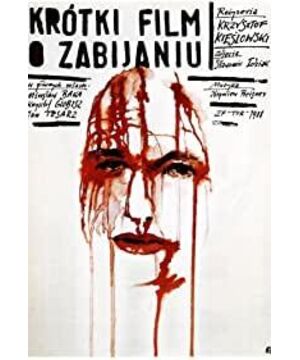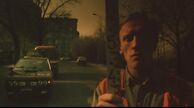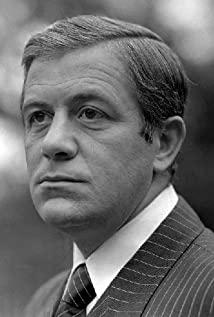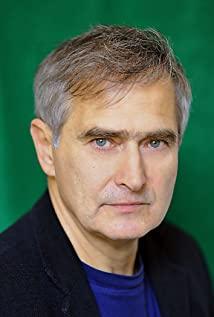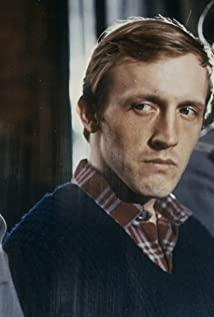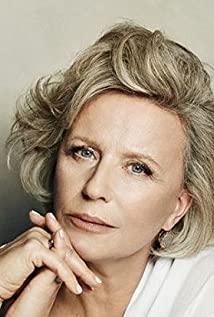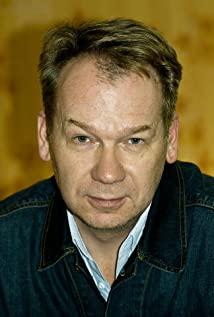In fact, I was introduced by a friend to watch "The Short Film" many years ago. At that time, I just entered our "civilized" society as an individual, and the director disclosed the information in the film. The shooting method is very different, and coupled with the name of "Blue, White, Red", I think this film is probably for me to be used as a discussion point for film reading.
In recent years, I have read a lot of books and reports describing the post-World War II or golden age from the point of view of the mainstream Western media. In addition, I have come into contact with some people and things when I lived abroad. My thoughts and understanding are quite different from before. Because of the recent series of current affairs news, a friend went to make up the class "The Furnace" and "Sowon", and talked about the significance of these two films in promoting the law in Korean society. When she was excited, I remembered this. "Murder Short Film". It is said that the year after the film was released, Poland abolished the death penalty. Although they are all influential films, the first two are being picked up, and the latter is meant to be put down. On a social level, I am noncommittal about the three films, but from the point of view of cinematography alone, "Kill" is hardly comparable to the other two films.
The story of the film is very simple, a confused young man wandering around the city like a ghost, a taxi driver who was mediocre in the market, and a young lawyer who passed the exam and finally participated in the social system. Taking advantage of the vacancy of the patrolman, the young man got into a taxi seemingly at random after coming out of the cafe. He took the opportunity to strangle the taxi driver in a sparsely populated place and dumped his body by the lake. The young man drove a stolen taxi to find his girlfriend, and was found and sentenced to hang. The taxi driver looks like every living being, a tool man. The taxi driver has a family and a job. He takes pleasure in verbally flirting with thin girls and frightening pets with his horn. Although he is insatiable for money, he is kind to stray dogs on the roadside. The duality of people can almost be found in the driver. found in every appearance. The young lawyer lost the first lawsuit in his life, and his client was the young man who killed the taxi driver. The lawyer immediately blamed himself for the failure of the trial. If he could find the abnormal youth in the cafe at that time, the taxi driver would be saved, or if he changed his defense strategy to win the case, the youth might be spared The death penalty comforted his family. The young lawyer told the prosecutor about his reflections and questions, and tried to get approval from him for his reflection, but he didn't get a clear answer. Before the youth's execution, he confessed to his lawyer that he killed the taxi driver because her sister was also killed in a tractor accident. The tractor was driven by his friend, who has since been arrested. Driven out of the house and finally came to an end.
In addition to the three key characters in the film, "Murdering Short Film" also interspersed with many, many details. Corresponding to the social environment at that time, the criticism in the film means that it is a bit out of place today. If we only start from the three key characters, the views that the film wants to express and the thinking it brings to the viewers are quite heavy.
First of all, as a young man from the first perspective, his eyes and behavior have the decadence and indifference that distinguish his age. The young man appeared in the film outside the cinema. When he asked the ticket salesperson if the movie was good, the salesperson who was busy fixing his hair replied casually that romantic movies were boring, and he asked where he could take a taxi, and the salesperson pointed him to him. square. When he came to the square, he met a painter who was really painting a little girl. The painter sold him the business of painting two portraits. When the young man questioned, the painter retorted that painting was his talent, and he did not accept the doubt and asked the young man if he had any problems. No talent, the young man answered without hesitation that he had no talent. At this time, the painter put down his posture to guide him to discover his talent, and gave the young man the skill of planting trees. When the young man didn't ask for a portrait, the painter immediately dismissed him and even shook his head in disdain. The young man followed the painter's instructions and continued to look for a taxi stand. He passed an end alley and saw two men beating up another man who was unable to fight back. Then, when he was standing by the roadside smoking, the old man angrily scolded him for disturbing the pigeon. He rushed over without hesitation to disperse the pigeons by the roadside. Then he came to a photo studio. The photo of the little girl in the window brought back his emotional memories. He handed over the photo of his sister to the photo studio to ask for enlargement, and asked a ridiculous question: Can photos bring people back to life? ? I think that the negative answer of the photo studio here has almost become a spark that triggered the youth to rise up to commit murder. After knowing that the emotional appeal can only be used as a memory and cannot be truly felt, the series of encounters of the youth have become an escalation of his motive for murder, and it has been irreversible. This anger and disorientation will disappear only if this kill is completed, or killed.
Second, a second perspective taxi driver. He and presumably you, me, him, most of us live in this world, seemingly alive without personal meaning. So even though he becomes a key figure in the whole story, his name is never mentioned throughout the film. For the whole society, he is not irreplaceable, nor is he a key part of the whole. He exists but is unknown. Although taxi drivers are just like the confused and angry young people, they are ants in human society, but the film strictly distinguishes them in many scenes. If the uncertainty and primitive impulses of human nature can be clearly seen in young people, then the driver shows both good and evil in human nature. This is the reality. We can't use simple good or bad to distinguish a specific person. Even specific to a certain thing, we can only stand on our own standpoint to evaluate the chain of a single event acting on ourselves. effect. Before the driver was killed, there were two places to stop the taxi, one was a surveyor who stood in the middle of the road with a measuring ruler, who symbolized the law; the other was a taxi driver passing by a zebra crossing and stopped to give way to a child crossing the road First, they symbolize morality. But twice failed to stop the taxi carrying the death, the reason is very simple because the passenger-driving-reward, this is the route that the society has already planned for the two, the deviation of one track will be caused by the other track. end.
Finally, when it comes to the young lawyer, it can be said that he is the core of the whole film, and also expresses the director's point of view through the lawyer's mouth. At first, the young lawyer appeared as an idealist. When asked why he wanted to be a lawyer, he replied that he did not know but was attracted by the meaning of the profession of lawyers, and his knowledge of the law came from books. These understandings are built on top of the castle in the air, so doubts and curiosity arise. It is this kind of doubt and curiosity that motivates him to want to participate more in practice. To become a lawyer and apply what he has learned is to satisfy this curiosity. and a means of doubt. When it comes to the law, he rationally and objectively expressed his understanding as a legal professional: without perfect law, the law cannot prevent the occurrence of crimes, and its essence is to deter and punish crimes. This is almost a fact of the spirit of modern law. It does not represent absolute fairness, nor is it a sharp sword in the hands of morality. The purpose of its existence is more to restrain the free nature of human society. If the nature of this freedom cannot be controlled within an acceptable range, it will often endanger the survival and development of the entire collective. Therefore, a good law and an applicable law must be in the interests of the majority of the collective. . Of course, this is an ideal state. When a young lawyer is really faced with the cold legal provisions imposed on a flesh and blood individual, it is inevitable to bear this kind of torture and blame from the other side of human nature. At this time, he is emotional, and sensibility and rationality are exactly what he has to do with The law has a new understanding. In the prison, he saw the young man about to be executed. After listening to the young man's statement about the death of his sister, he may be surprised at that moment that one killing was caused by another killing.
At the end of the film, the young lawyer, following the youth's instructions, found a lush forest that the young sister liked, and burst into tears in front of Yangguan. There is no doubt that the director is sympathetic to the "freedom" in human nature, and his sympathy for individual life and criticism of the indifferent society always run through the whole film. Aside from the factors of the times, "Murder Short Film" is still a masterpiece with a deep understanding of the law and human nature. In the film, although the dialogue of the characters is very few, the narration of the camera and the soundtrack are more likely to arouse deep thinking by virtue of the film's tone framing.
I believe that every law is written for more fairness and less crime. But we have to admit that injustice and crime happen all the time around us. More often, when the law is really used, it is only a shroud after suffering, it ends evil and it is born from evil. This is a tragedy of human nature, and it cannot be avoided. Just as we have to preach freedom and we have to defend it. Therefore, in order to avoid the crisis caused by the out-of-control freedom, most people silently accept the constraints of the law. However, sometimes people can't tell what is law and what is virtue. Virtue is the cultivation and restraint of an individual, and it is impossible for a non-group to become a group. There must be differences between individuals, which is destined to be divided into high and low virtue. The law is different, the law should take the mode of the high and low, not the average or the number.
Regarding whether the film here really promoted the ban on the death penalty in Poland, I personally think that the complicated world should not be one-sided. However, I can't agree 100% with the thoughts that the film's presentation gave me, and the sympathy that the director conveyed. Human nature is very complex and cannot be tempted. Even if there are not rabble among us, there are all beings. It is true that no life should be easily deprived, but the reverence for the law precisely reflects the attitude of human beings towards life - respect, Every right to live; fear, the result of every evil deed.
View more about A Short Film About Killing reviews


